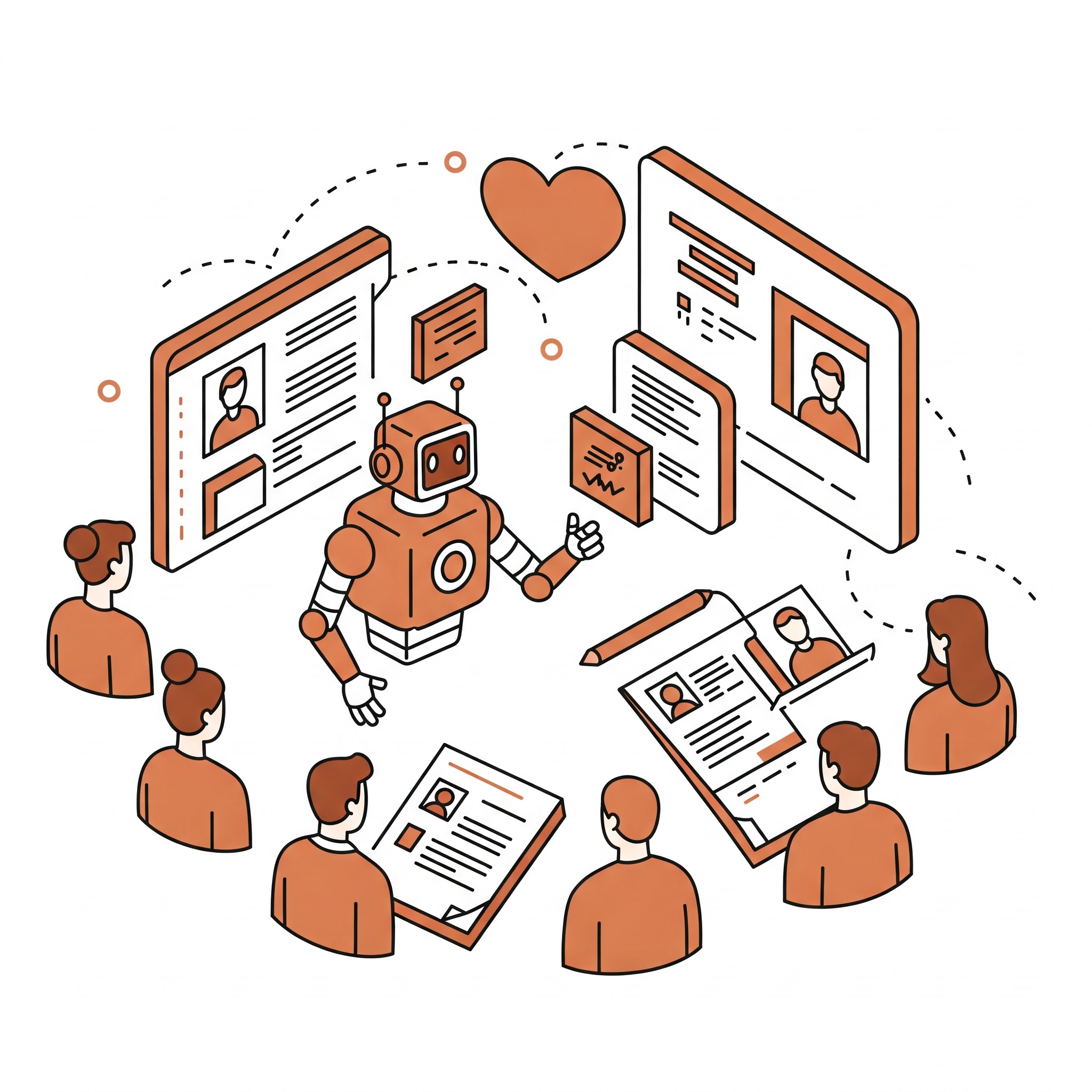Over the past few years, artificial intelligence has revolutionized the hiring process of companies at a fast pace. From the automation of routine tasks to providing real-time insights on candidates, AI applications have brought more efficiency and scalability to the hiring process.
Yet, as with every potent innovation, AI-based talent acquisition is both an opportunity and a challenge.
Here’s a more detailed look at the advantages and disadvantages of AI in hiring — so you can make smart choices about how and where to apply it in your company.
The Pros of AI Talent Acquisition
1. Faster Hiring
AI significantly lowers time-to-hire by streamlining time-consuming processes such as resume screening, interview scheduling, and candidate outreach. What used to take weeks is now possible in days — or even hours.
2. Better Candidate Matching
Machine learning algorithms can scan candidate profiles and job descriptions in bulk to provide improved-fit matches based on skills, experience, and behavior patterns — not keywords.
3. Bias Reduction (When Done Right)
Structured interviews and AI-powered standardized assessments can reduce unconscious bias. AI encourages fairer hiring decisions by relying on objective criteria — particularly during initial screening.
4. Scalability for Growing Teams
With AI, whether you’re hiring 5 or 500 applicants, large volumes don’t cause additional stress. This is particularly helpful for fast-growing startups or enterprises recruiting across multiple departments.
5. Enhanced Candidate Experience
Chatbots, automatic follow-ups, and virtual assistants keep candidates in the loop and engaged along the way — minimizing ghosting and drop-off.
The Cons of AI in Talent Acquisition
1. Algorithmic Bias Risk
Unless properly trained, AI systems can perpetuate the biases of input data — inadvertently discriminating against some candidates. Transparent, diverse data sets and periodic audits are critical.
2. Over-Reliance on Automation
Human intuition has not yet become obsolete. Over-automating the process can remove the human touch, leaving candidates feeling disconnected or devalued — particularly in subsequent stages of the hiring pipeline.
3. Contextual Understanding Constrained
AI systems may get it wrong sometimes when interpreting sophisticated resumes, non-traditional career histories, or cultural alignment. Human recruiters are still superior at detecting soft signals and evaluating flexibility.
4. Privacy Issues
Applying AI to harvest and process candidate information raises serious issues of consent, transparency, and data privacy. Compliance with regulations such as GDPR is not optional.
5. Candidate Skepticism
Not everyone is at ease conversing with AI. Some might wonder if their answers are assessed in a just manner or feel awkward being interrogated by a computer program.
Conclusion:
AI talent acquisition functions best in harmony with considered human judgment. Use it to automate routine work, reveal insights, and scale confidently, but always preserve space for empathy, discussion, and nuance.
Here at Fomogo, we don’t think AI exists to replace recruiters — we think AI exists to support them. Responsibly applied, it can help teams recruit more intelligently, quickly, and equitably.




